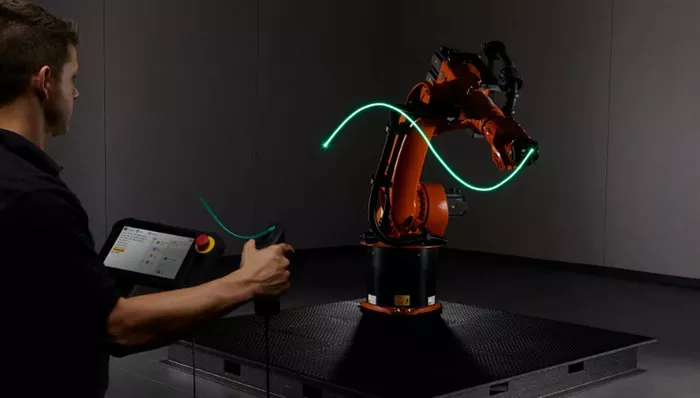Working alongside robots is becoming increasingly common in recycling, where automated systems handle complex tasks like disassembly. But training workers to safely and efficiently collaborate with robots can be slow and challenging.
Researchers at the University of Georgia (UGA) have developed a new virtual reality (VR) training platform, VR Co-Lab, designed to speed up and improve the learning process for human-robot teamwork in recycling tasks.
Why Disassembly Is Tough — and Why Robots Help
Disassembly is a critical step in recycling electronics. It allows valuable parts and materials to be recovered before devices reach the end of their life. Unlike assembly, which follows a clear step-by-step procedure, disassembly is more complicated and less predictable.
“Disassembly is slightly more complicated,” said Beiwen Li, associate professor at UGA’s College of Engineering and lead author of the study. “Simply reversing the assembly process does not always work well.”
Robots assist by handling heavy or repetitive tasks, but humans still need to do fine, delicate work. Training workers to cooperate safely with robots is essential but time-consuming.
Virtual Reality Makes Training Faster and Safer
The VR Co-Lab platform immerses trainees in a realistic virtual workstation where they can practice disassembling a hard disk drive with robot assistance.
Wearing a VR headset, users see the tools and robotic arms they would encounter on the job. The system guides them step-by-step — humans handle small screws and bolts while the robot manages larger parts.
The VR program tracks user performance, including completion time and mistakes, giving immediate feedback to improve skills.
“There are a lot of tasks that require complicated training,” Li said. “VR training is much easier and faster than reading through lengthy manuals.”
Advanced Body Tracking Boosts Safety
Using Meta Quest Pro, VR Co-Lab monitors users’ upper body movements — wrists, elbows, shoulders, and torso. This allows the system to anticipate and adjust the robot’s actions, avoiding collisions and improving cooperation.
The program also warns trainees about hazards like potential robot arm collisions, helping reduce injury risk.
Future Plans and Industry Impact
Li and his team plan further user tests to adapt VR Co-Lab for different skill levels and a wider range of disassembly tasks. As robots become more common in recycling, efficient training will be vital to fill labor shortages and ensure safe, smooth operations.
“Robots will be important for the future of recycling because they can automate many disassembly steps,” Li said. “But humans and robots need to work together, which is why we developed this VR system.”
The research was published in the journal Machines and funded by the National Science Foundation. Collaborators include researchers from Iowa State University and Texas A&M University.
Related topics:

